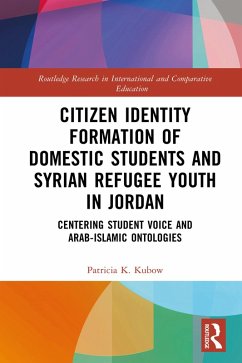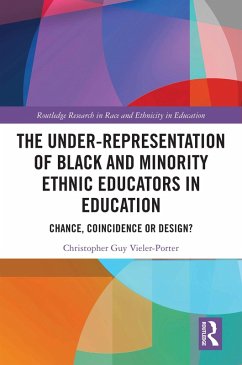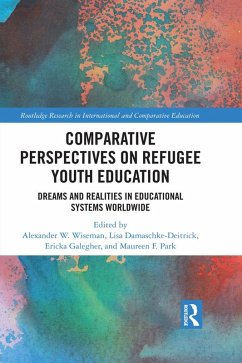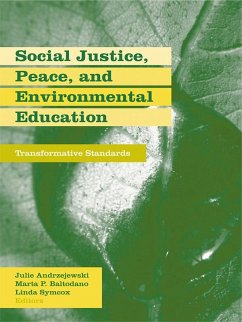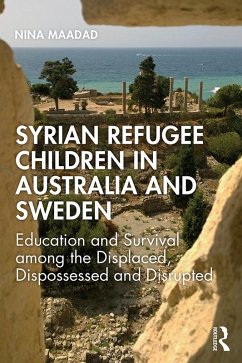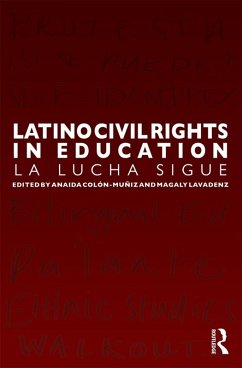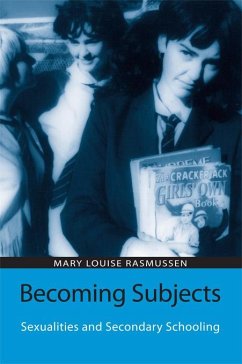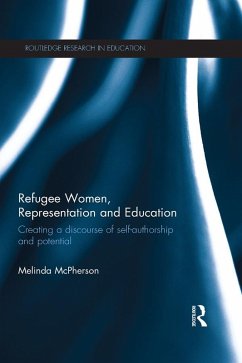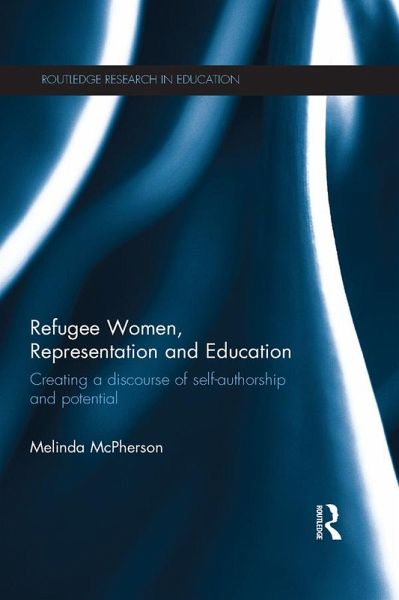
Refugee Women, Representation and Education (eBook, PDF)
Creating a discourse of self-authorship and potential
Versandkostenfrei!
Sofort per Download lieferbar
49,95 €
inkl. MwSt.
Weitere Ausgaben:

PAYBACK Punkte
25 °P sammeln!
Even with increased attention to refugee women's issues in the late 20th century, post-colonial discourses have nurtured limiting representations of refugee women, predominantly as subjects of charity and as victims. Adding to a growing body of work in the field, the author challenges this preconception by offering an opportunity for women's voices
Dieser Download kann aus rechtlichen Gründen nur mit Rechnungsadresse in A, B, BG, CY, CZ, D, DK, EW, E, FIN, F, GR, HR, H, IRL, I, LT, L, LR, M, NL, PL, P, R, S, SLO, SK ausgeliefert werden.




